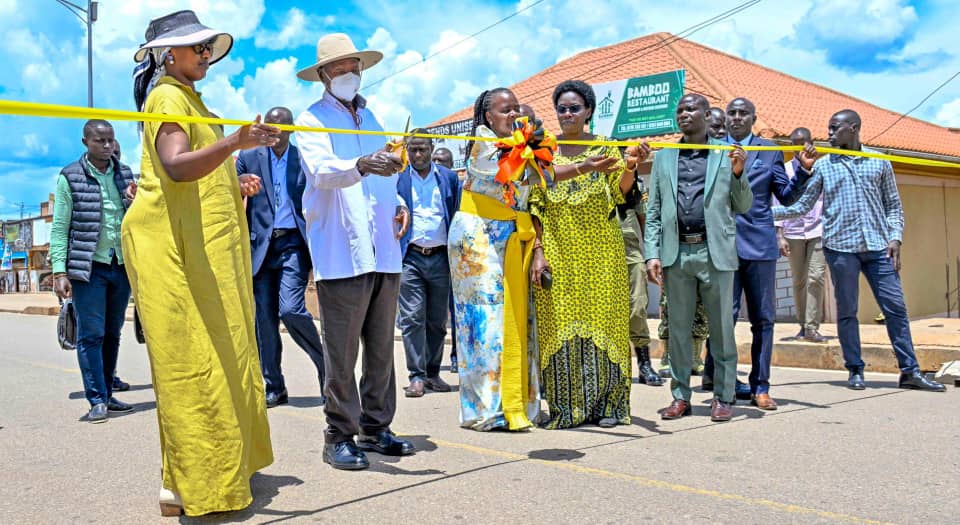By Wabusimba Amiri
In just four months, Uganda’s President Yoweri Kaguta Museveni has visited Mubende District twice a notable deviation from his usual presidential itinerary.
To casual observers, such recurring presence might suggest a region on the cusp of transformation. But on the ground, a different narrative unfolds one of growing disenchantment and missed opportunities in a region historically central to Uganda’s liberation struggle.
Mubende is no ordinary district, it is a site of symbolic and strategic importance, deeply etched in the story of the National Resistance Army (NRA).
One would expect this legacy to secure it a privileged position in national development planning.
Yet, for the people of Mubende, presidential visits have largely remained ceremonial punctuated by clean-up campaigns for convoys and high-profile rhetoric, but little in the way of sustainable transformation.
During his most recent stop in the neighboring district of Kasanda, President Museveni amplified the Parish Development Model (PDM), urging citizens to “seek ye first homestead income.”
The messaging, couched in biblical allusion, is inspiring.
But for residents in Mubende, it is also hauntingly familiar reminiscent of past promises that quickly faded without structural follow-through.
Unlike other regions that have leveraged presidential attention to secure road upgrades, modern agro-processing plants, or youth led projects, Mubende’s development indicators remain stubbornly stagnant.
Local farmers continue to face chronic market dysfunction. Maize the region’s staple crop is now a source of financial vulnerability, not empowerment.
Without regulated pricing, protected cooperatives, or sufficient storage infrastructure, even bumper harvests lead to losses.
This pattern of unfulfilled opportunity is compounded by deep governance concerns.
While the PDM champions wealth creation at the grassroots, land insecurity remains one of the most destabilizing barriers to rural prosperity.
Violent disputes are no longer rare occurrences. A chilling double homicide over land in Madudu sub-county last year shocked even the most hardened observers. And yet, the issue barely featured in the presidential discourse.
What further dims hopes for systemic change is the erosion of coherent local leadership.
A recent live radio debate, intended as a platform for developmental dialogue, instead became a public altercation between Mubende District Chairperson Michael Ntambi and MP Bashir Lubega Ssempa.
The heated exchange, riddled with personal attacks and braggadocio, underscored the extent to which political ego has eclipsed collective action.
This fracturing isn’t limited to one incident or one pair of leaders.
The once-unified political front that secured an overwhelming win for the National Resistance Movement (NRM) in 2021 has disintegrated into public feuds involving Hon. Kabanda David, Hon. Hope Grania Nakaizibwe, and others.
Instead of forming a cohesive bloc to attract state-led programs and infrastructure investment, the district’s representatives now appear more focused on consolidating individual profiles.
Ironically, Mubende was chosen to host the 39th NRM Liberation Day a moment that could have spotlighted its historical contributions and current needs.
But the President’s speech made little mention of the host district, instead centering praise and policy direction toward others.
To locals, this silence was not just disappointing it was symbolic of Mubende’s diminishing role in national development priorities.
Even initiatives meant to foster inclusion and resilience face credibility concerns. SACCOs, once seen as vital engines of rural finance, are now questioned for their reach and transparency.
Meanwhile, Mubende’s youth the demographic that should be powering its future remain largely excluded.
Public schools are underfunded, technical colleges are nearly non-existent, and higher education is financially out of reach.
The once-prominent presidential scholarship scheme feels like a relic of a bygone era.
The media, a potential ally in accountability, operates under constraint.
Local journalists who investigate corruption or challenge administrative failures frequently report threats and exclusion.
During his visit, the President called on the press to support the national development agenda through responsible reporting.
But without guaranteeing freedom and safety for reporters, such appeals ring hollow. Mubende’s condition is not rooted in a lack of potential.
It boasts vast agricultural resources, a culturally vibrant population, and a politically aware youth.
But symbolic gestures and repeated visits, without serious engagement with local stakeholders, policy reform, or investment, are not enough.
For PDM and similar frameworks to succeed, they must be coupled with security of land tenure, equitable access to markets, competent and united local governance, and open civic participation.
Mubende’s development gap is not the product of insufficient effort by its people, but of a national approach that too often prioritizes optics over impact.
If Uganda is to truly decentralize wealth and unlock rural growth, it must do so inclusively, consistently, and accountably. Mubende deserves more than nods to its past it deserves an active role in shaping the country’s future.

Amiri Wabusimba is a diplomatic Scholar, Journalist, political analyst and Human Right activist. Tel: +56775103895 email: Wabusimbaa@gmail.com.
Have An Advert Or Article You Want Us To Publish? Whatsapp: +256786288379 or email binocularugnews@gmail.com
